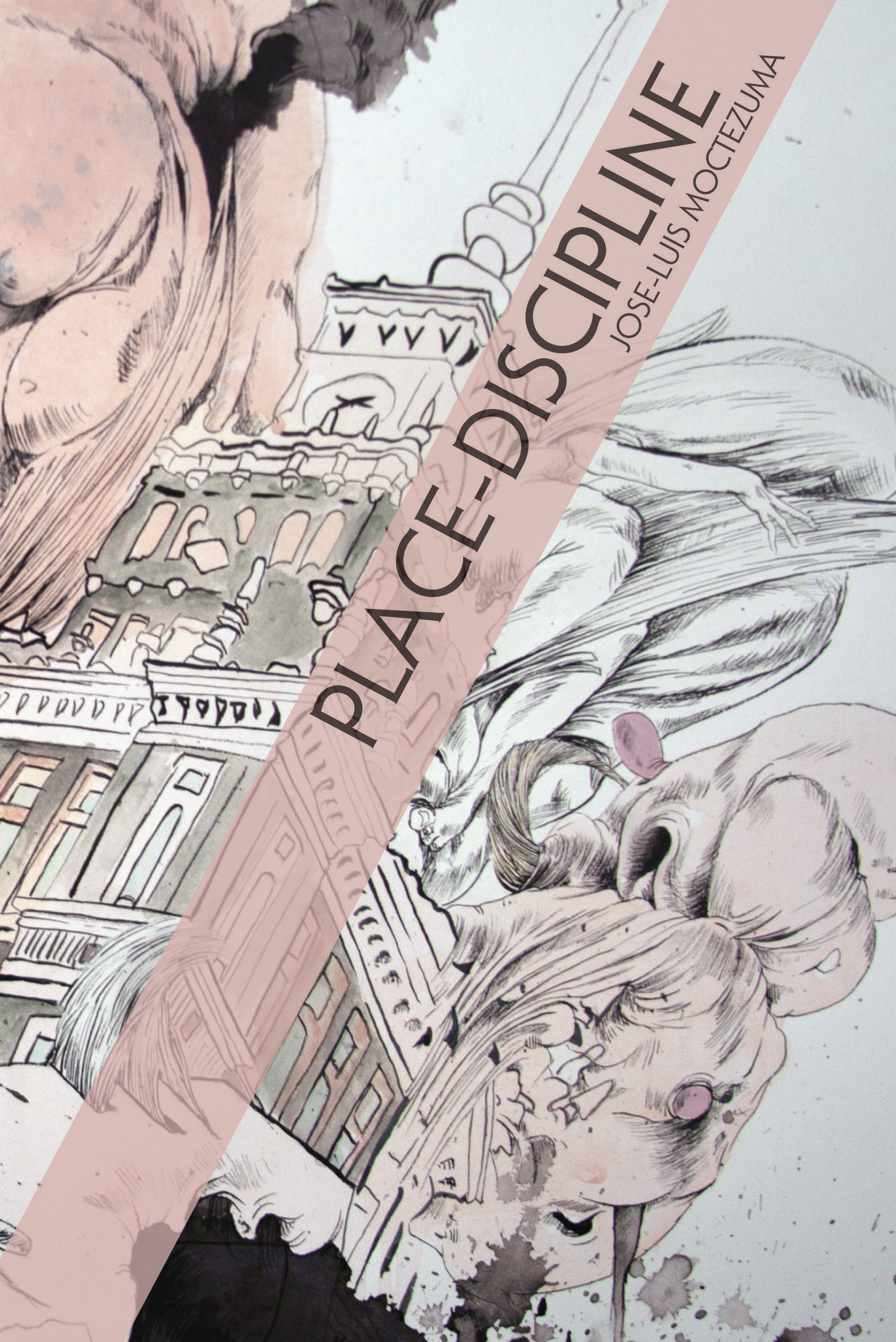PLACE-DISCIPLINE
OMNIDAWN // OCTOBER 2018
Winner of the Omnidawn 1st/2nd Poetry Book Prize
A psycho-geography and metahistory of the formation of Chicago
Begun as a project exploring the psychogeography and metahistory of the formation of Chicago, Place-Discipline lyricizes 21st century subjectivity as the byproduct of, and resistance to, global capitalism's necropolitics and the encroachment of occult financial industries and vectoralism on the human's right to chaotic embodiment and trans-formation. Taking its title from Sun Ra's 1972 album, Discipline 27-II, Place-Discipline explores hybridity, hyphenation, and heliocentric border-crossing as possible alternatives to the darkening "white magic" of cognitive capitalism and cultural gentrification. At once a disquisition on the economics of austerity and a response to the enforced scarcity in our rights to spectral identity, difference, and translanguaging, Place-Discipline seeks to bypass the binary code of depoliticization by reaching the plateau of an enunciation which speaks through fracture, and which sings through DuSablean absence.
“Place-Discipline culls, cleaves, and retextures language in the service of non-totalizing modes of formal and prosodical attentions that powerfully intensify the stakes and commitments of poetry. Jose-Luis Moctezuma tends the striations, variegations, and substrata of translingual, transcultural, and transhistorical materiality. Moctezuma activates the sonic, the polymetric, and the haptic not as a palliative to the incessant, coercive logics of empire, but to potentiate futural past present temporalities that mobilize the unterritorialized in oneself, in perception itself.”
“Too many contemporary poets are stuck to the tones of the prefabbed social, piping up and down the scales of shared ‘national’ definition. So it’s rare and exciting to encounter a poet who deftly dials into cross-cultural microtonalities that make visible the spectral historicities of Imperium’s time-&-space trickery. Jose-Luis Moctezuma aims his political scope at the psychic rootwork of our past-present moment, finding pathways out into sun-dappled new vistas and desires. The hard won futurism implicit there bespeaks of a new cartography where syncretism has become autochthony. Strange to even utter it, but Place-Discipline is the latest mutation of the Whitman-Marti-Cesaire complex, and the democratic entanglements are still us.”
“Jose-Luis Moctezuma joins a great tradition of fabricators of America, from Melville to Pound to Charles Olson; Place-Discipline resonates prosodically and in its knowledge-clusters with the assurance of The Maximus Poems. This is an establishing work. How can a Latino poet re-fabricate America and fabricate his own multiple heritages in the white world and in English? First, through a practice of dérive in the down and dirty hyperpolis. As Moctezuma’s verse moves between urban zones in Chicago, a city of multiple denied, superimposed and circumscribed worlds, its rhythms shift within and against their rhythms, poised in encounter, whether stalking in reactive isolation or dancing in unison. Second, Moctezuma reverse-engineers America from the globally dispersed world city, an exploded Chicago, weaving the Hispanic and indigenous threads back in its fabric assertively. Third, he fabricates himself as an American through the cants of English from Shakespeare to Bhanu Kapil and a myriad of points between. Every page is as rich in echoes as Caliban might wish. There is wild and shocking humour in this book (‘I Gather the Limbs of ISIS’) as well as instruction, there is rage and there is beauty. No snippets here: Place-Discipline must be read through, not raided or sailed around. What an astonishing first book.”
REVIEWS
“Instead of a totalizing pantopia of space, Moctezuma’s poems imagine (or simply posit) Chicago, the poetic subject, and/or the neutered ‘Place’ of ‘Place-Discipline,’ as a city created by unseen forces (as all current cities are) and composed by an urban design organized by the occult sciences of white supremacy, colonialism, and global finance/computational capitalism. Here we find that today’s affective/noopolitical geopolitical form of finance capitalism has intensified the Megapolisomancy initiated by the colonial project, a project predicated on the invention of race as the ground for imagining a surplus of life that can be wasted and spent without end.”
“Moctezuma writes paeans to possible forms of congregation and harmonization that might escape the threshing sledge, indeed that might escape history itself.”
“[Place-Discipline] is a book that demands to be read again and again, that asks you to read actively — and with an encyclopedia on your lap. And it is an ambitious book — astonishingly so, for a first book. It places Moctezuma in the company of some of the 20th century’s most ambitious and adventurous poets — Robert Duncan, with his mythic imagination, Aimé Césaire, with his anti-colonial densities, and Nathaniel Mackey, with his mobile, diasporic syntax.”
